- Home
- Andrew Wareham
Dire Shenanigans (The Making of a Man Series, Book 2) Page 3
Dire Shenanigans (The Making of a Man Series, Book 2) Read online
Page 3
“There is an obvious concern for Canada, sir. Does the remainder of his ambition matter to us?”
“A long war with American industry forced to the production of munitions will be much to our advantage, Mr Burke. Another year and the Americans, North and South together, will not have a score of ocean-going merchant ships under their flag, and those mostly in the Pacific. All of their Atlantic trade will go in English ships. English influence in South America will be unchallenged. The Americans will be frozen out of Africa and will have their influence in China much reduced; they will be unable to sustain the trade with Australia which they had begun to develop. Their links with Canada will be much weakened, as coastal shipping to the north will all be under the Red Duster, and they will be incapable of challenging Spain in the Caribbean and Pacific for another generation.”
It was logical, when expressed so simply.
“The Prime Minister will hear of this, Mr Burke, and will no doubt offer Mr Lincoln his support. A loan of a million in gold would work wonders, I doubt not, strengthening the Western armies and taking the Mississippi and so heartening the people of the North to continue the war and push for a final success. At the same time, the South might find itself able to purchase commerce raiders out of British yards, and thus to perhaps escort blockade runners into their harbours. Give the South the armaments and they will launch an offensive in the East that will force McClellan to fight and will set the country ablaze. There will be no easy peace after both parties have lost fifty thousand men!”
“A brutal policy, sir!”
“Very much so, Mr Burke. Realpolitik, I believe it to have been recently called. The consideration of power shorn of the ties of sentimentality. A development of the analysis of Machiavelli, of course. It is brutal, but my loyalty is to Britain, sir, and foreigners, whoever they may be, can go hang for me!”
Dick could understand that viewpoint, but then he wondered what he was – had he any loyalties at all?
Major Hewitt obviously had the same concern and began to sound Dick out on his background and future ambitions.
“I am a businessman, I find, Major Hewitt. I tried to be a gentleman when I was younger but found it far too vulgar a pursuit for my taste. I suspect that I shall become rich – because the making of money is none too difficult after one has accumulated the first ten thousands. The initial stage does demand a degree of ruthlessness akin to criminality; indeed I would wager there is not a self-made man in the country who would thank the police for investigating his early years! I am past that first precarious position, however, and expect to be within reason publicly respectable for the remainder of my career. In part of course a pristine public face is more easily attained when policemen are so very cheap to purchase – pay a constable a wage of eighty a year and ten pounds becomes very attractive to him, while twenty buys him body and soul.”
Hewitt was appalled – no man should speak so frankly to a mere acquaintance.
“Will you ever return to America, Mr Burke?”
“Probably quite soon; possibly to stay, certainly to visit and do business – I like the country and much of its way of life. Do you know, sir, while I was there I was never once asked who my father was and what he did – they seemed happy to judge me for myself rather than for my ancestry.”
Hewitt disapproved – there was much to be said for breeding in his opinion, and even more for the possession of broad acres of Old England. His own family was not rich, but his father had been a senior regimental officer in his day, and his before him, and he expected to marry one day and produce sons to carry on the tradition.
“You will not wish to return to the service of General McClellan, Mr Burke?”
“He would not wish me to, Major Hewitt. He discovered that he had no liking for men who had gained a reputation in the cannon’s mouth and who might, courtesy of half an hour of unthinking butchery, outstrip him in the esteem of the public. Do not mistake me, by the way, he is no coward, as such – place him on the field of battle and he will acquit himself well – but he would far rather not be on the field of battle if he can possibly avoid it.”
“Would any man, sir?”
“Well… combat can offer a rare degree of exhilaration, sir.”
Major Hewitt had seen service in the Crimea and was aware that battle could be exciting, had served with a number of officers and men who had revelled in it, had sought out danger. He had intensely disliked those men, as a rule, regarding them as being cracked in the head for the most part. Cardigan of the Light Brigade, for example, was known to be intellectually dull and to possess very little common sense either.
He frowned disapprovingly and turned the subject to Dick’s parentage.
“Sir Godby Burke, Bart. A businessman of some renown in the West Country; wealthy, I believe. The baronetcy is of very recent creation, Major Hewitt, obtained for him by the Carteret family, in exchange for him marrying me off, little more than a sheltered schoolboy, to a somewhat careless daughter.”
“Good God!”
Major Hewitt was appalled, not by the marriage, a prudent and probably necessary expedient, but by Dick’s willingness to breach confidentiality.
“The lady died recently, Major Hewitt, in circumstances that have not been vouchsafed to me. I may well seek to heal the breach with my esteemed father as a result.”
“You are the eldest son, Mr Burke?”
“Only child, sir.”
“Then, really, you must feel under some obligation to come to terms with Sir Godby. I do not know the family, I must confess.”
“Dorsetshire, sir, near Blandford the house he has bought. As for ‘knowing’ the family, I should be much surprised to hear that my father was so privileged! I am quite sure that he is the first generation of the Burkes, sir.”
Major Hewitt was out of his depth – his whole adult life had been spent in the Army and mostly in Whitehall. The world of business was closed to him and the very concept of the self-made man was alien. He had been intending to recruit Dick to make friendly and innocent contact with the Americans from the Embassy but felt that to be ineligible now – how he could he put faith in such a self-proclaimed outsider?
“Do you imply that he comes from an agricultural background, Mr Burke?”
“No, sir. I believe that a number of German and Russian Jews fled to England in the Twenties and Thirties after a series of nasty atrocities instigated by their governments. I much suspect that he was one of them. He is of an age to have arrived then as a young and penniless and hungry man, one determined to find a place in the world.”
Not merely an outsider, but foreign as well, and probably a Jew; not too important, the last factor – lots of money in the Hebrew community and they were very patriotic.
“You might wish to send me a note if you decided to go to the States again, Mr Burke.”
“I would be very happy to, Major Hewitt. You have a direction for me?”
“Horse Guards will find me, sir.”
“I will, of course, be very happy to demonstrate my commitment to my country, Major Hewitt.”
Dick was aware that he was in a dangerous position now; without any great choice on his part he was in contact with a less overt aspect of government – and he had no means of ensuring their loyalty to him. He was not a member of the landed gentry; he had not attended the right sort of school; he had not sat his terms at University; he had no family ties to any politician – he was vulnerable. He had run once; no doubt he could do so again, provided he had time to do so.
Dick returned to Liverpool to find a letter waiting for him, an invitation to spend a week at Burke’s in the following month. He sent a polite reply and acceptance, then he sat down to think.
Book Two: The Making
of a Man Series
Chapter Two
There was an old ballad, Dick remembered, ‘The Wild Rover’ the Irish singer in Mud Creek had called it; Dick could call his through-the-nose tenor easily to mind, wailing in the prair
ie nights. The protagonist of the ballad had made some money and was to return home to beg forgiveness of his parents and then to settle and roam no more.
Not for him! He might well go to his father’s house for a few days, but not to stay long and certainly not to accept subservience. He was his own man, and would remain such; his freedom was too expensively bought to be given away.
That said, he had no great grievance any more, not against the Old Man. He had been coerced for sure, threats made against his business and his fortune – the Carteret interest might well have been quite ruthless, all at second hand, of course, the pressure exerted by their lawyers and agents, never themselves. The poor old fellow had nothing other than his money, had probably lifted himself from degradation purely by his own efforts – one could hardly expect any delicacy of feeling in him, and he had paid him out already by stealing two thousands from him, and his horse – that must have hurt!
The Carterets were a different matter – arrogant, privileged aristocrats who had abused the Old Man just as much as himself, caring nothing for the harm they had done, throwing a few pennies and a cheap title to a merchant from the underclasses in exchange for relief from a trivial scandal. One of their daughters had shown herself a whore – so what? It had happened before in other families, no doubt would again; a storm in a teacup, embarrassing for a Season, almost forgotten by the next. The Carterets had treated the Old Man with contempt while giving Dick no thought at all – they had been no more than temporary conveniences. They would have shown a pet dog more consideration.
They should pay for their arrogance.
Carteret was not a lot more than half-witted, but had nonetheless been in control of his own estate and finances. Dick wondered whether he still was or if a spendthrift trust had been created to enable the family to control him. He visited Mayhew, asked whether such things could easily be discovered.
They could, it transpired; he would require no more than a week.
The creation of a company in place of the existing partnership in patent medicines was in hand as well; there must be a list of names for the board of directors very soon.
“I go to Dorset in three weeks, Mr Mayhew, will have your extra directors when I return. I presume the firm will be called ‘Burke and Robinson’?”
“I had thought of something more striking, sir. What of the ‘Golden Panacea Company’, sir?”
“A little too explicit and somewhat arrogant, I believe. How about ‘Mrs Boswell’s Household Remedies’?”
“With a lithograph of Mrs Boswell underneath as a crest, Mr Burke!”
“Yes indeed! I am sure we could locate a suitably kindly seeming lady for the purpose.”
They agreed that all should go ahead as quickly as possible.
“While I think of it, Mr Mayhew, I rather like the Golden title. Perhaps you could register that as well, in case of future need.”
Mayhew raised an eyebrow as he noted the instruction, his legal training leading him to wonder just what the future need might come to be.
“Lord Carteret, Mr Burke, is rarely to be seen in public these days, but he has full control of his own fortunes. His bank still honours his signature without question – does not even refer his expenditure to other family members.”
“I am glad to hear that, Mr Mayhew.” That made it practical to go ahead with his scheme.
“The Golden Panacea Company, sir, will be concerned to exploit the gold deposits lately discovered on the Benin Coast of the new colony of Nigeria. One thousand shares at ten pounds apiece, I believe. The company will wish to borrow a significant sum as well for capital expenditure; there will be a need to sink a deep mine when the surface deposits are exhausted and this working should be commenced immediately. A short term loan, of course, at a high rate of return, the interest to be covered by the alluvial gold dust and nuggets. One might well offer the loan to existing shareholders rather than go begging to the banks. Prospectus to detail the discoveries and the huge profits certain to arise from the deeper veins, if you would be so good.”
Mayhew blinked, begged to be informed whether Mr Burke was sure of his information.
“Of course, Mr Mayhew, I shall show you the letters from an officer of the garrison at Port Harcourt in Nigeria, the source of my certain knowledge.”
Mayhew was concerned only that he should not himself be regarded as a villain. He would not investigate the actual antecedents of the letters – he would accept his client’s good faith as given.
“Will you offer your esteemed father the opportunity to invest in your concerns, Mr Burke?”
“He may be invited to take shares in Mrs Boswell, Mr Mayhew. I do not think that colonial gold-mining is his forte, however.”
Dick made his way to a local printing firm where he gave orders, as Managing Director, for share certificates to be printed, properly on stiff paper and in a suitably ornate typeface. Mrs Boswell’s Household Remedies was all in black and white, gave an impression of solid, unadorned worth. The Golden Panacea Company’s certificates were a glare of gold and scarlet and curlicued copperplate, gold ingots portrayed at the head, nuggets elegantly profuse at the foot; they were works of art in themselves, tastelessly vulgar in true Victorian style.
“Strike off five thousand, if you would be so good, Mr Bull. Number the first thousand, if you please.”
Dick paid the printer cash in advance, thus ensuring no questions asked, or to be answered at a later date. There would be no entries in the books either, he suspected – there was no need to alert the taxman. He spent a few hours later that day writing the letters from Port Harcourt.
The chemist, Mr Robinson, was not at all certain that he understood this business of companies and shares. Dick explained all to him.
“Between us we must own fifty-one per cent of the shares of Mrs Boswell, so that we can always outvote all other owners and keep control. I shall buy my shares against cash – which, in truth, is all I have to offer the company. Your shares are allocated against your knowledge of medicines, which is your contribution to our profits. When all is said, Mr Robinson, you are the founder of the firm and by far the most important figure in it. It is my most earnest desire that you will be enabled to continue to devise more tonics and cordials to the benefit of suffering humanity while I devote my lesser skills to the mundane tasks of making us a comfortable living. A man of medical genius should not be forced to lower himself to the considerations of filthy lucre, sir!”
Robinson had been poor and was now in possession of two thousand pounds a year, with the expectation of rapid increase in that sum. He was very happy to be persuaded to forget about the financial side of the business, in fact blessed the day that good Mr Burke had so fortuitously come into contact with him – he could never have made so much on his own.
They had hired a bookkeeper of transparent honesty, a gentleman of sixty who had been discarded by the merchant house for whom he had worked all of his life as becoming too ancient and a risk to them. They told Mr Summers that he might become ill and a liability, so they would dispense with his services, giving him five pounds as a recognition of his long and loyal commitment to them. Summers was terrified that he might be put out on the street – an aging and unwell widower whose children had long gone away – and worked every hour he could, saving every penny. Dick was able to announce that he must go to Dorsetshire for a week or two in safe certainty that all would be well.
The carriage was waiting at Blandford, a new, and one might assume legitimate, coat of arms emblazoned on its doors, a stylised shamrock superimposed on sacks, presumably of grain; it seemed that the Old Man was now officially of Irish extraction.
“Many a strange thing has been discovered in the bogs, after all!” Dick murmured, very quietly.
Nearly an hour on the old-fashioned unmade roads out to Burke’s, seven miles in the spring sunshine. He remembered this same journey not so many months before, him a nervous schoolboy. He was a different man now.
His
father greeted him at the door, shaking his hand formally.
“Richard! I am pleased that you were able to come here, sir. I owe you some degree of apology, I believe.”
Dick was as surprised by his father’s manner of speech as he was by the admission of fault.
“Schoolteachers come cheap, Richard – and a baronet must show some respect for conventionality. Besides, it pays better in business – if you would believe anything so bloody stupid! You get a better price for speaking fancy!”
Dick started to laugh, shook his head in mock despair.
“Enough of apologies, sir. I was also much at fault, I now believe.”
Sergeant Bill, listening in the background, nodded his satisfaction – that was as much as either might be prepared or be expected to give.
“No man, Richard?”
“A valet, sir? Not yet, I think. I may still be returning to the States for a few months, or years even, and a gentleman’s gentleman would be out of place there. If I go back I will spend some time in the West.”
The Old Man grinned triumphantly.
“The Sharps Kid, one is given to understand, dear boy!”
The accent was much overstated in an attempt to achieve the Mayfair drawl.
“Why not, sir? A reputation does one a lot of good out there. A fighting man who will offer no abuse to any man, and take none either, can be trusted in a business deal, or so they say. I could buy a thousand tons of wheat on my handshake alone, not a cent handed over, purely because I am the Kid.”
“The newspapers talk of the West as lawless, but you say that business can still be done, Richard?”
“Possibly it is the case that the courts and the police are little to be seen, Father, but there is a feeling for right and wrong, and only a few tend to cross the line between them, or so I am told. What this war will do, I know not, because it is likely to break down all fellow-feeling. I would add, by the way, sir, that it is not only in the West that the gun may make the law. I came across a British renegade in Wilmington in the Carolinas on my way back to England – I will tell you the whole story during the week – but I shot him in the street after he drew on me, and was applauded for so doing.”

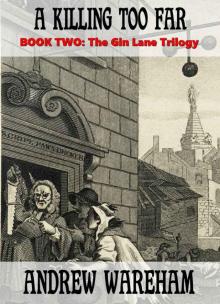 A Killing Too Far
A Killing Too Far Killing's Reward
Killing's Reward A New Place
A New Place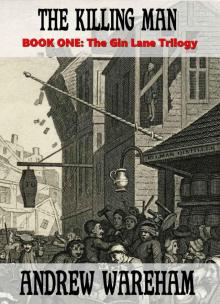 The Killing Man
The Killing Man Bold and Blooded
Bold and Blooded The Breaking Storm (Innocent No More Series, Book 2)
The Breaking Storm (Innocent No More Series, Book 2) Nobody’s Child
Nobody’s Child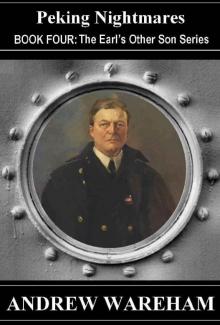 04 Peking Nightmares (The Earl’s Other Son Series, #4)
04 Peking Nightmares (The Earl’s Other Son Series, #4)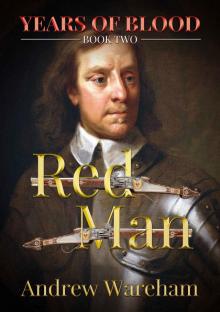 Red Man
Red Man Foreign Mud
Foreign Mud The Gathering Clouds (Innocent No More Series, Book 1)
The Gathering Clouds (Innocent No More Series, Book 1) 06 A Soldier’s Farewell (Man of Conflict #6)
06 A Soldier’s Farewell (Man of Conflict #6)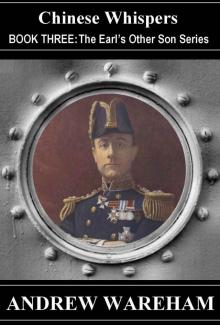 Chinese Whispers
Chinese Whispers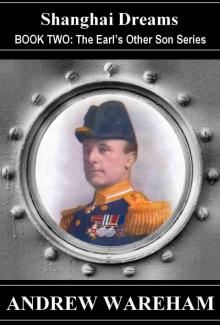 02 Shanghai Dreams (The Earl’s Other Son #2)
02 Shanghai Dreams (The Earl’s Other Son #2)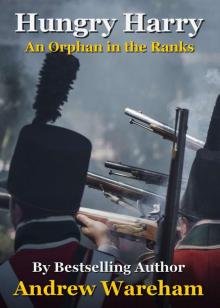 Hungry Harry: An Orphan in the Ranks
Hungry Harry: An Orphan in the Ranks A Wretched Victory (Innocents At War Series, Book 6)
A Wretched Victory (Innocents At War Series, Book 6) Illusions Of Change (A Poor Man at the Gate Series Book 6)
Illusions Of Change (A Poor Man at the Gate Series Book 6) The Wages Of Virtue (A Poor Man at the Gate Series, Book 8)
The Wages Of Virtue (A Poor Man at the Gate Series, Book 8) Blood and Famine (Man of Conflict Series, Book 4)
Blood and Famine (Man of Conflict Series, Book 4) The Friendly Sea (The Duty and Destiny Series, Book 1)
The Friendly Sea (The Duty and Destiny Series, Book 1)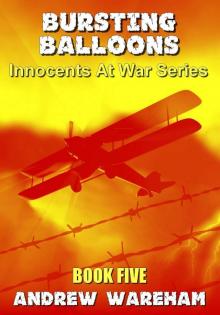 Bursting Balloons (Innocents At War Series, Book 5)
Bursting Balloons (Innocents At War Series, Book 5) The Death of Hope
The Death of Hope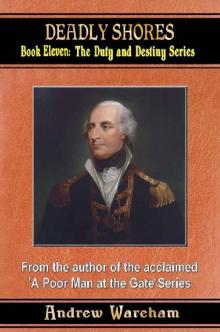 Deadly Shores (The Duty and Destiny Series, Book 11)
Deadly Shores (The Duty and Destiny Series, Book 11) The Vice Of Virtue (A Poor Man At The Gate Series Book 10)
The Vice Of Virtue (A Poor Man At The Gate Series Book 10) Virtue’s Reward (A Poor Man at the Gate Series, Book 11)
Virtue’s Reward (A Poor Man at the Gate Series, Book 11)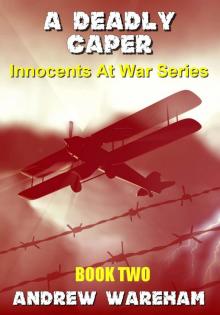 A Deadly Caper (Innocents At War Series, Book 2)
A Deadly Caper (Innocents At War Series, Book 2)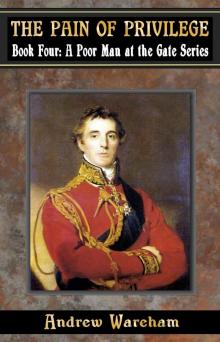 The Pain Of Privilege (A Poor Man at the Gate Series Book 4)
The Pain Of Privilege (A Poor Man at the Gate Series Book 4) Far Foreign (The Duty and Destiny Series, Book 9)
Far Foreign (The Duty and Destiny Series, Book 9)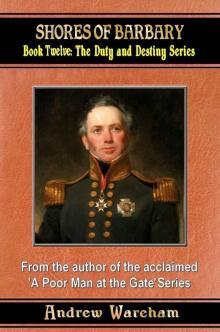 Shores of Barbary (The Duty and Destiny Series, Book 12)
Shores of Barbary (The Duty and Destiny Series, Book 12)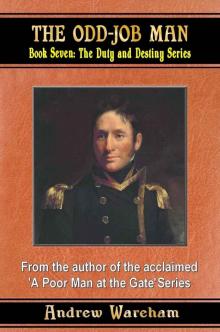 The Odd-Job Man (The Duty and Destiny Series, Book 7)
The Odd-Job Man (The Duty and Destiny Series, Book 7) Fire and Folly (Man of Conflict Series Book 3)
Fire and Folly (Man of Conflict Series Book 3)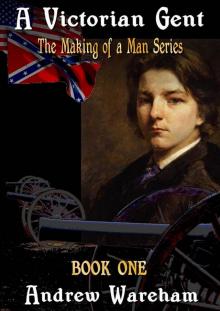 A Victorian Gent (The Making of a Man Series, Book 1)
A Victorian Gent (The Making of a Man Series, Book 1)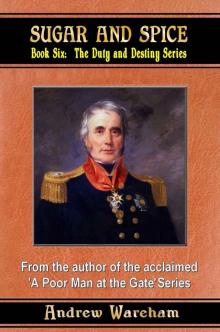 Sugar and Spice (The Duty and Destiny Series, Book 6)
Sugar and Spice (The Duty and Destiny Series, Book 6)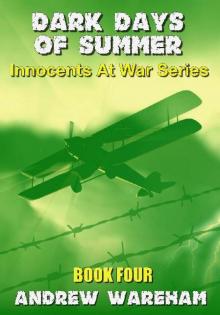 Dark Days Of Summer (Innocents At War Series, Book 4)
Dark Days Of Summer (Innocents At War Series, Book 4)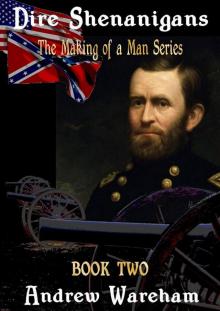 Dire Shenanigans (The Making of a Man Series, Book 2)
Dire Shenanigans (The Making of a Man Series, Book 2) The Fuzzy-Wuzzy Man (The Duty and Destiny Series, Book 3)
The Fuzzy-Wuzzy Man (The Duty and Destiny Series, Book 3) Privilege Preserved (A Poor Man at the Gate Series Book 5)
Privilege Preserved (A Poor Man at the Gate Series Book 5)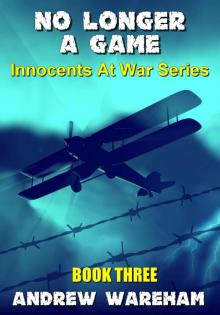 No Longer A Game (Innocents At War Series, Book 3)
No Longer A Game (Innocents At War Series, Book 3)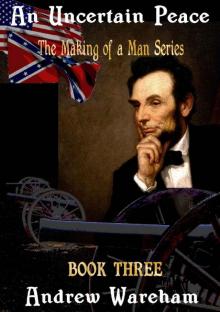 An Uncertain Peace (The Making of a Man Series, Book 3)
An Uncertain Peace (The Making of a Man Series, Book 3)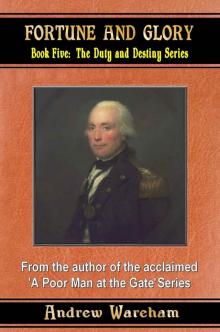 Fortune And Glory (The Duty and Destiny Series, Book 5)
Fortune And Glory (The Duty and Destiny Series, Book 5) The Old Order (A Poor Man at the Gate Series Book 7)
The Old Order (A Poor Man at the Gate Series Book 7) A Place Called Home (Cannibal Country Trilogy, Book 2)
A Place Called Home (Cannibal Country Trilogy, Book 2) Nouveau Riche (A Poor Man at the Gate Series, Book 2)
Nouveau Riche (A Poor Man at the Gate Series, Book 2) The Privateersman (A Poor Man at the Gate Series Book 1)
The Privateersman (A Poor Man at the Gate Series Book 1)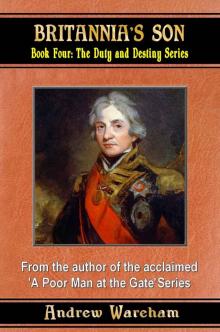 Britannia’s Son (The Duty and Destiny Series, Book 4)
Britannia’s Son (The Duty and Destiny Series, Book 4) Long Way Place (Cannibal Country Trilogy, Book 1)
Long Way Place (Cannibal Country Trilogy, Book 1) Spanish Tricks (Man of Conflict Series, Book 5)
Spanish Tricks (Man of Conflict Series, Book 5) A Parade Of Virtue (A Poor Man At The Gate Series Book 9)
A Parade Of Virtue (A Poor Man At The Gate Series Book 9)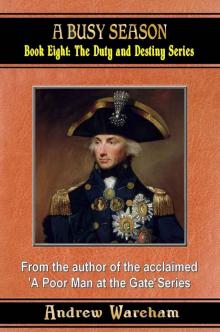 A Busy Season (The Duty and Destiny Series, Book 8)
A Busy Season (The Duty and Destiny Series, Book 8) Billy Bacon and the Soldier Slaves (Colonial Warrior Series, Book 1)
Billy Bacon and the Soldier Slaves (Colonial Warrior Series, Book 1) Raging Rajahs (Man of Conflict Series, Book 2)
Raging Rajahs (Man of Conflict Series, Book 2)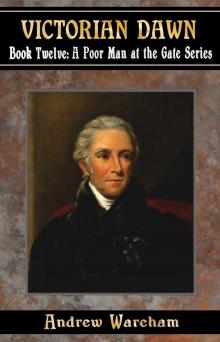 Victorian Dawn (A Poor Man at the Gate Series, Book 12)
Victorian Dawn (A Poor Man at the Gate Series, Book 12) Born To Privilege (A Poor Man at the Gate Series Book 3)
Born To Privilege (A Poor Man at the Gate Series Book 3)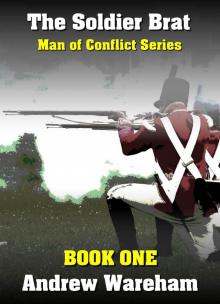 The Soldier Brat (Man of Conflict Series, Book 1)
The Soldier Brat (Man of Conflict Series, Book 1)